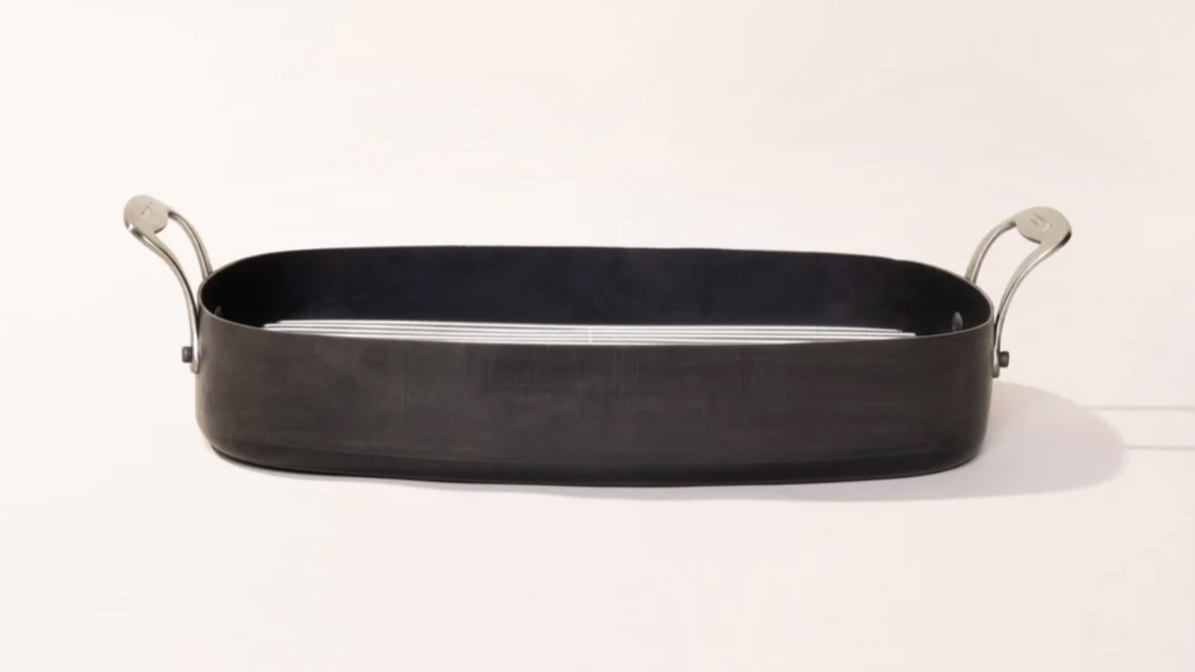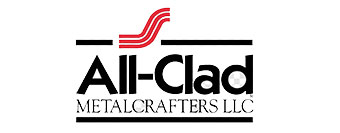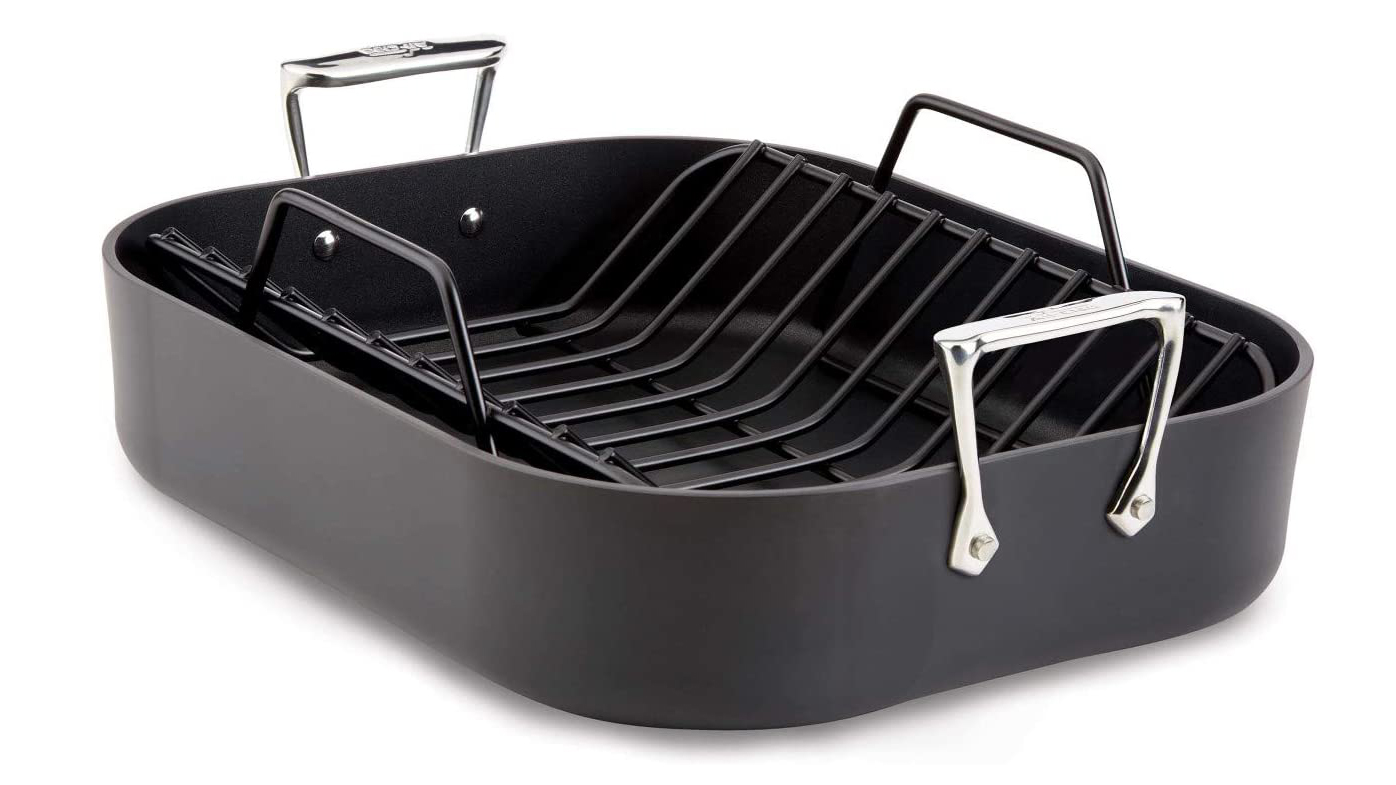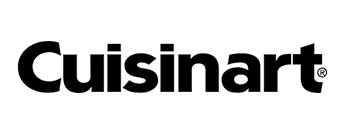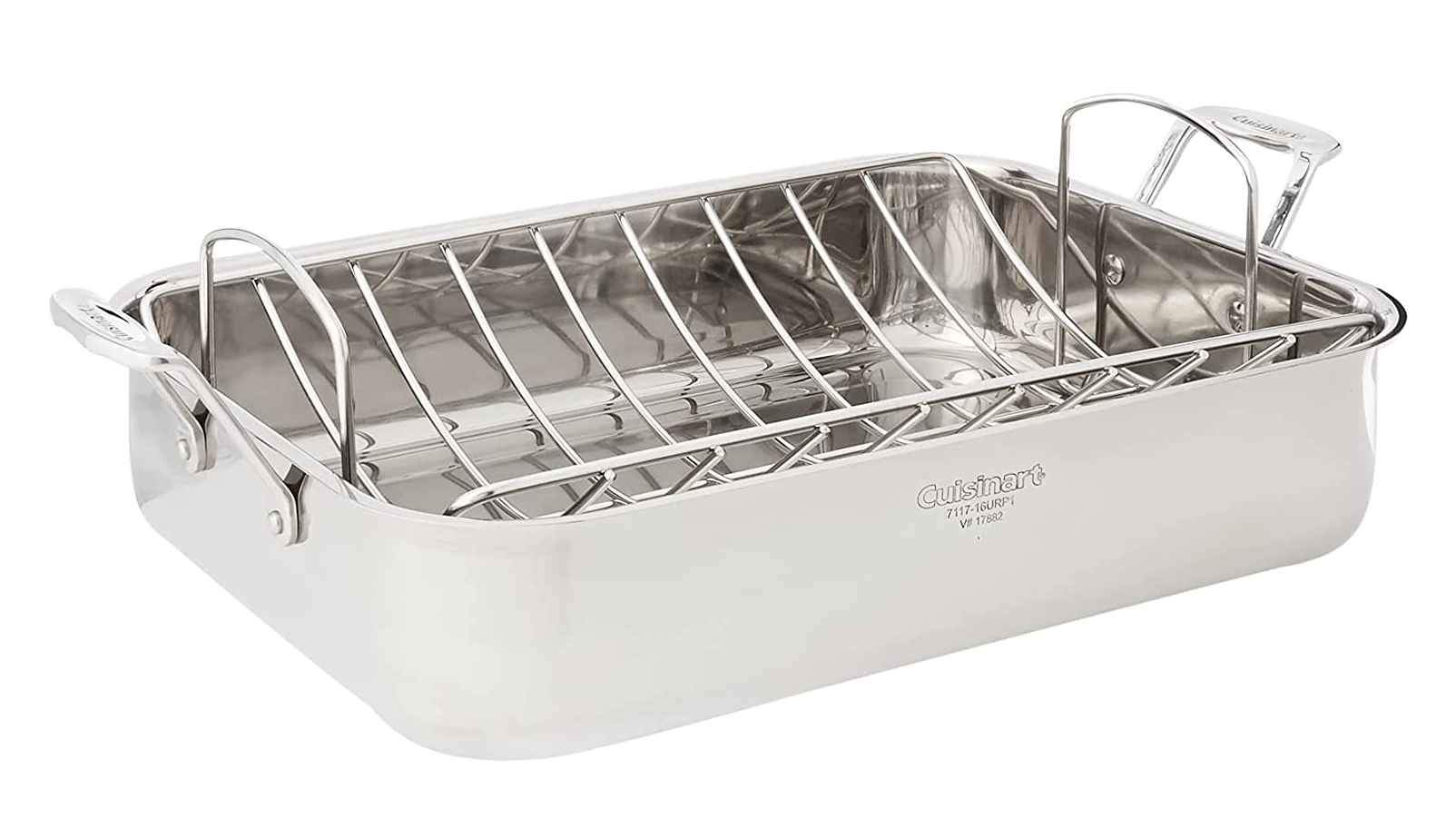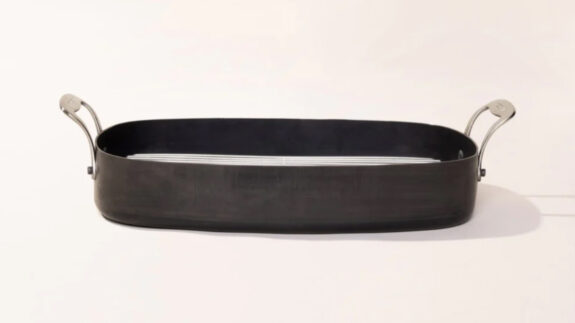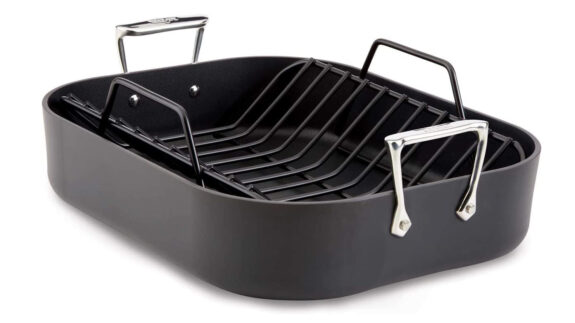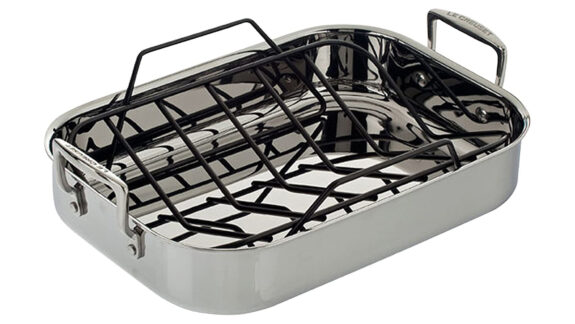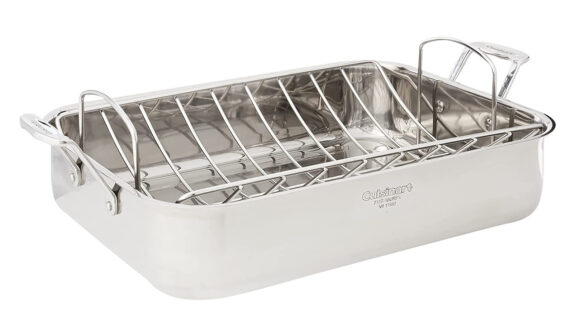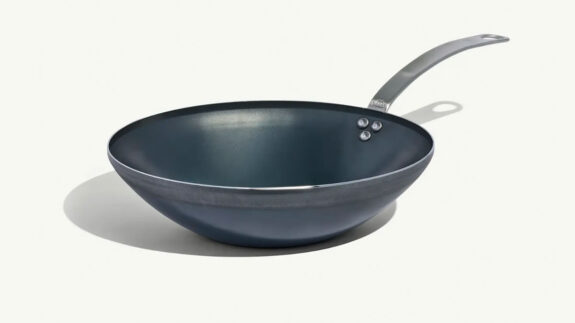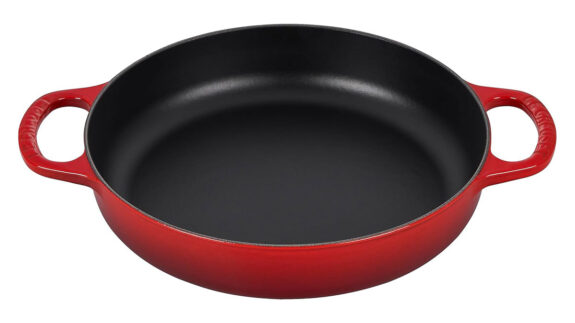Highest Rated Roasting Pan Brands:
Our Roasting Pan Recommendations
Blue Carbon Steel Roasting Pan
Ideal For:
- Anyone who cooks often It’s a great investment for people who cook often.
- People who want a versatile pan. The pan can be used for a variety of dishes.
- Looking for a high-quality pan. The pan is made from high-quality materials and is built to last
- Someone looking to expand their culinary creativity.
Considerations:
- Someone who isn’t willing to property care for carbon steel cookware
Other Roasting Pan Options
Hard Anodized Non Stick Roaster
Steel Roasting Pan
Stainless Steel Roasting Pan
How to Care for Your Roasting Pan
Depending on the material they are made of, different roasting pans require different methods of care including seasoning and cleaning. Here’s how to care for your roasting pan depending on the type you choose:
Carbon steel: Carbon steel roasting pans are popular for their even heat distribution and durability. However, they do require some extra care. Season your carbon steel roasting pan before first use by rubbing it with a layer of vegetable oil. This will create a natural patina that will help to prevent sticking and rusting. After each use, wash the pan in hot, soapy water and dry it thoroughly to prevent rusting.
Stainless steel: Stainless steel roasting pans are a good choice for those who want an easy-to-care-for option. Unlike carbon steel, stainless steel doesn’t need to be seasoned before use. However, it is important to wash the pan in hot, soapy water after each use and dry it thoroughly to prevent rusting. If rust does occur, simply scrub the affected area with a steel wool pad. These pans resist corrosion and staining, and they’re also dishwasher safe.
Aluminum: Aluminum roasting pans are lightweight and easy to store. However, they can also be easily scratched and dented. To prevent this, line the pan with parchment paper or foil before use. This metal can also be prone to warping, so it’s important to choose a heavy-duty aluminum pan that won’t buckle under the weight of your roast.
Non stick: Nonstick roasting pans are coated with a material that prevents food from sticking to the surface. This makes them very easy to clean, and many are dishwasher safe, but it also means that they’re not suitable for high-heat cooking methods like searing or browning. Be sure to use mild soap and avoid scouring pads or abrasive cleaners, as these can damage the nonstick coating. It’s also important to avoid using metal utensils, as they can scratch the surface.
Cast iron: Cast iron roasting pans can last for generations when properly cared for. Before using your pan for the first time, wash it with warm soap and water. Then, dry it thoroughly and coat it with a thin layer of vegetable oil. After each use, wash your pan with warm soap and water. Avoid using harsh abrasives, as they can damage the seasoning on the pan. If food sticks to the pan, use a little elbow grease and a wooden spoon to scrape it off. Avoid using metal scrapers, as they can scratch the surface of the pan. Once you’re finished washing the pan, dry it thoroughly and put it away in a dry place. Do not put it away damp, as this can cause rusting.
No matter what material you choose, proper care will help to extend the life of your roasting pan. After each use, be sure to wash your pan properly and once your pan is clean, dry it thoroughly before storing. If it’s made of cast iron, carbon steel or stainless steel don’t forget to coat the surface lightly with oil to help prevent rusting. With proper care, your roasting pan will be an essential part of your kitchen for years to come.
Common Roasting Pan Questions
A roasting pan is a large, deep pan that is commonly used for roasting meat, poultry, and vegetables. Most versions have two handles that allow it to be easily lifted in and out of the oven. It also typically is used with a wire rack that helps to lift the food out of the pan to allow the fat and juices to drain away and hot air to circulate.
Whether or not a roasting pan needs a rack depends on the recipe being used. Some recipes call for the food to be placed directly on the bottom of the pan, while others call for the food to be placed on a rack. When in doubt, it is always best to follow the recipe instructions.
Using a lid with your roasting pan depends on the recipe being used and how you like your meat cooked. If you like your meat perfectly cooked and succulent, then you’ll want to use a lid. If you prefer crispy skin and well-seasoned meat, then it’s best to cook uncovered.
Roasting pans are typically used for larger cuts of meat, such as whole chicken or turkey. They are also commonly used for roasting vegetables or potatoes. Some common recipes include roasted turkey or chicken, pork tenderloin roast, and rack of lamb roast.


